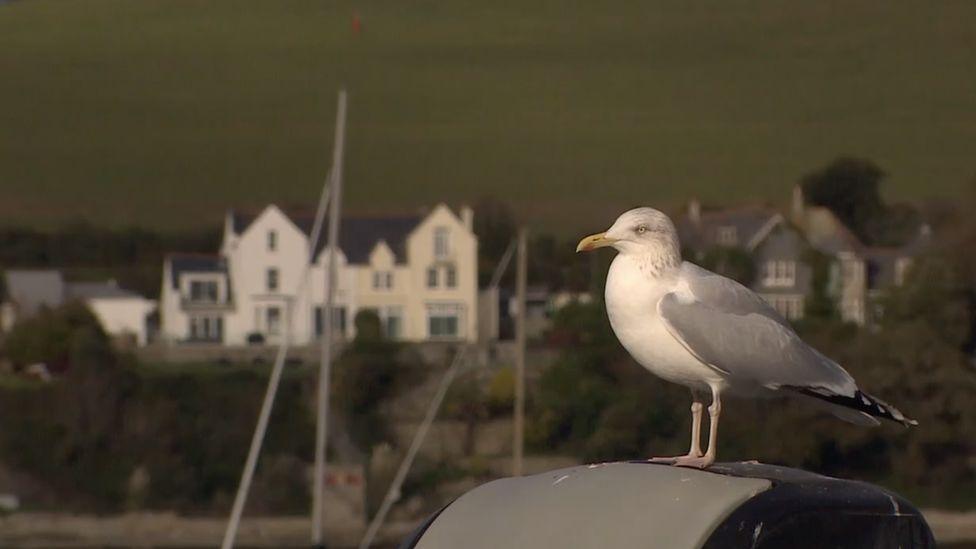Two cases of bird flu confirmed in Guernsey

Two herring gulls were found with avian influenza on the weekend of the 9 and 10 July
At a glance
Guernsey confirms two cases of bird flu
Two herring gulls were found with the disease
States veterinary officers have published guidance to owners of poultry and islanders on how to protects birds and themselves from the disease
- Published
Guernsey has confirmed its first two cases of bird flu in 2022.
Two herring gulls were found with avian influenza on the weekend of the 9 and 10 July.
The States veterinary officers have published guidance for owners of poultry on how to protect birds and themselves from the virus.
David Chamberlain, States veterinary officer, said both owners of poultry and islanders had an "important role to play" in preventing the spread.
"We’re calling particularly on poultry owners to follow the guidance that has been provided for both the safety of their animals and also to prevent further spread to other wild birds.
"If you come across dead or sick birds of prey, seabirds or poultry, please do not touch them, but instead contact us and provide us with as much information as you can."
Deputy States veterinary officer, Grace Hodgkinson, issued the following advice:
Ensure wild birds cannot access feed, water, bedding or litter
Make premises unattractive to wild birds by using visual bird scares, removing feed sources and blocking access to water
Have good biosecurity measures to avoid indirectly infecting your own birds
Contact States vets if any bird develops symptoms or is found dead
Dr Nicola Brink, director of public health, said it was "really important" to follow guidance.
"Some strains of bird flu can pass to humans but this is extremely rare, it usually requires very close contact with an infected bird so the risk to humans is considered very low.
"However, it is really important that we follow the advice from the States veterinary officers and not touch any dead or sick birds, but contact either the States vets or GSPCA."